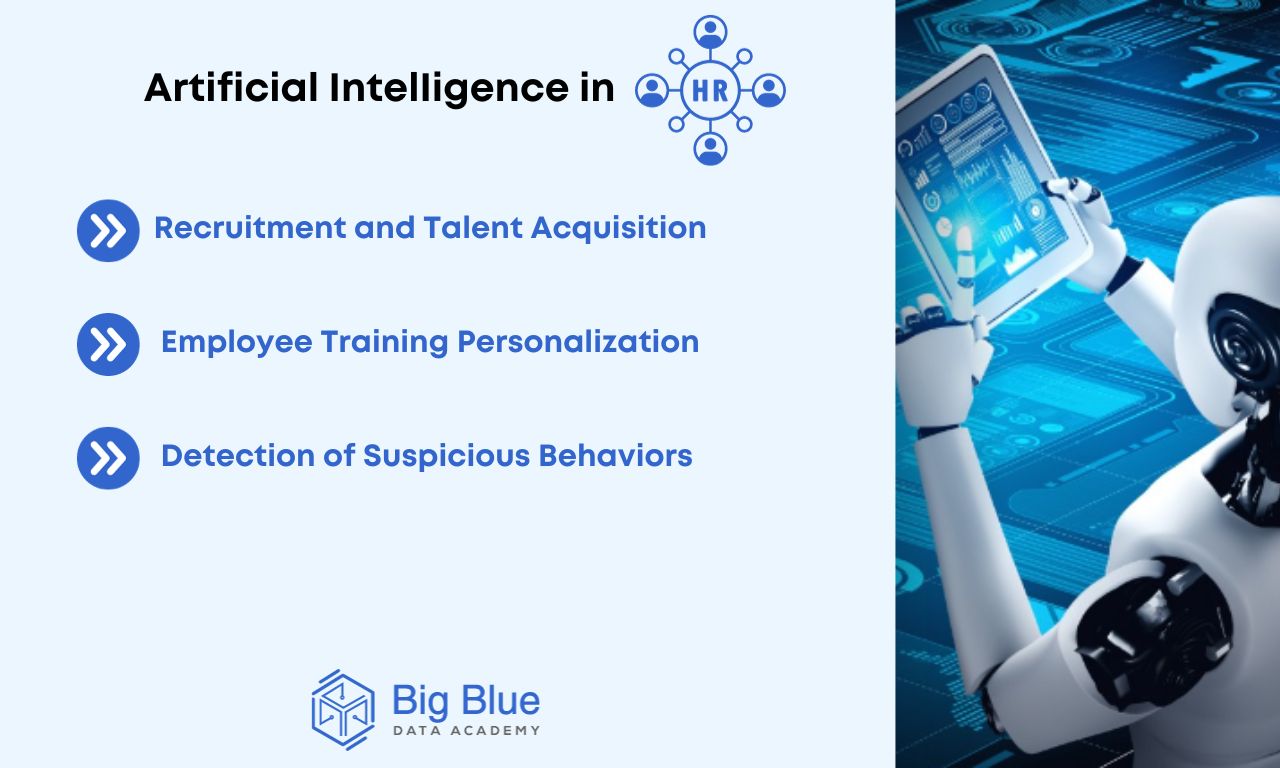How Artificial Intelligence Is Transforming HR
The various developments brought about by Artificial Intelligence (AI) have reshaped not only the economic and medical sectors, as we've seen in our previous articles, but also the Human Resources (HR) department.
Professionals in the HR field, harnessing AI, can utilize machine learning and algorithms for better decision-making and time-saving, among other benefits.
In today's article, we will explore:
- What Artificial Intelligence means in HR and its significance
- How Artificial Intelligence is used in HR
- The challenges posed by the use of AI in HR
Let's start with the basics.
What is AI in HR, and Why is it Important?
Artificial Intelligence (AI) in HR refers to the utilization of various AI methods in the field of human resources.
This involves using algorithms, AI tools, and Machine Learning to gather valuable information from HR data and automate repetitive and time-consuming processes.
According to Gartner's research, 81% of HR leaders have explored or implemented AI applications as a significant solution to enhance the efficiency of various processes within their organizations.
Undoubtedly, AI holds particular importance in the HR sector, contributing to process streamlining, improved decision-making, and enhanced productivity.
As a result, it strengthens the profitability and overall dynamics of a business, setting it apart from the competition.
Additionally, AI reduces the likelihood of errors and biases in HR processes such as recruitment, hiring, and employee evaluation.
Now, let's delve into how Artificial Intelligence is utilized in HR.
How is Artificial Intelligence Used in HR?
Artificial Intelligence has significantly transformed and altered many traditional functions and processes followed by HR departments in companies.
Let's explore some ways AI can be applied in HR:

Recruitment and Talent Acquisition
Recruiting and talent acquisition is a key part of a company's human resources work.
AI reduces the time spent on hiring new employees by automating manual tasks such as data entry, posting new job positions, and sending job offers.
According to Eightfold AI's report The Future of Work: Intelligent by Design, 73% of the 250 HR leaders surveyed are already using AI in their hiring processes.
Algorithms can sift through resumes, identifying suitable candidates based on various criteria.
Natural Language Processing (NLP) can analyze video interviews, recognizing elements and patterns that indicate a candidate's likelihood of success.
Employee Training Personalization
AI contributes to personalizing employee training by creating plans and goals based on individual data, making upskilling and reskilling processes more efficient.
Through AI, employee training can be effectively tailored, creating data-driven plans and goals for each individual, rather than in a generalized way as is traditionally the case.
AI tools significantly facilitate career development by helping identify talents within the organization.
This saves time and money that would otherwise be spent on recruiting and training external talent.
Detection of Suspicious Behaviors
AI can be used to monitor employee performance, overall behavior, and dedication to the company.
By analyzing employee data, such as email messages, AI can detect patterns of suspicious or inappropriate behavior, providing valuable information to HR teams.
Having explored the benefits of AI in HR and the ways it is employed, let's now examine some challenges and concerns raised by the use of AI in HR.
Challenges Posed by the Use of Artificial Intelligence in HR
Despite the numerous benefits of AI in various business sectors, there are limitations and challenges arising from its use in HR.
Particularly, since AI applications often require access to large amounts of personal data, ensuring privacy to prevent unauthorized access to personal information is a common concern.
Additionally, there are fears of potential job displacement due to the automation of certain human resource tasks.
Moreover, because AI algorithms are trained on historical data, there is concern about what happens if the training data is incomplete, biased, or inaccurate.
It's crucial to note that the key lies in how we use AI.
When applied with respect and compliance with various data protection regulations, such as GDPR, AI in HR offers valuable benefits.
Also, the human factor is and will remain important.
So, although some jobs may be replaced, new opportunities and jobs are increasingly being created thanks to AI.
Ramping Up
In conclusion, the field of AI and data science has brought about radical changes in the business sector, enhancing productivity and profitability.
If you are intrigued and want to learn more about the exciting and well promising field of AI, you can follow us and we will keep you updated on the latest trends!


.jpg)